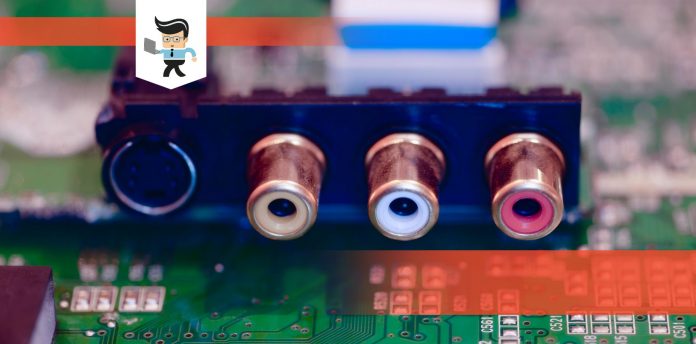DAC vs. sound card is a common topic among gamers, audiophiles, and sound enthusiasts.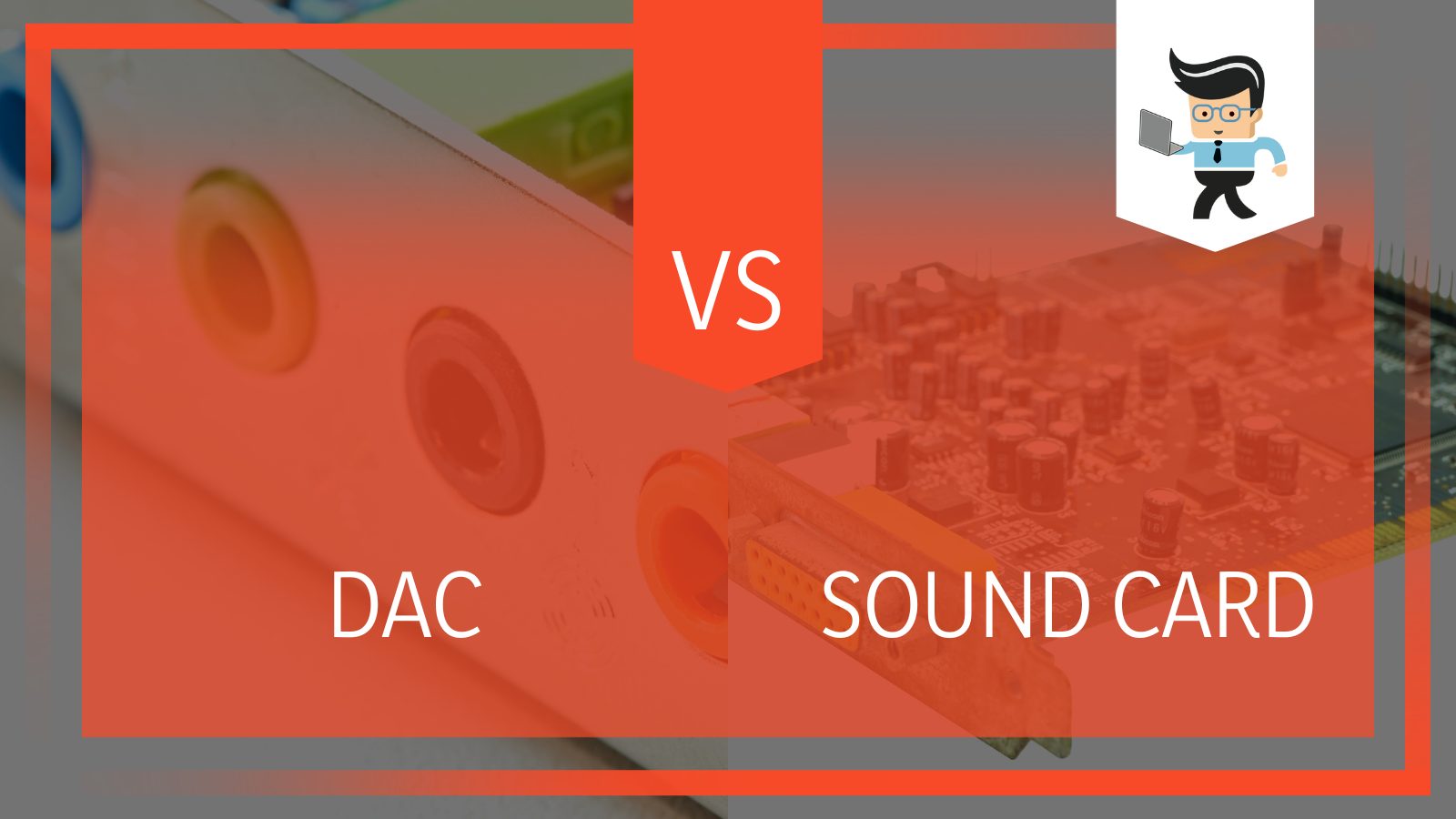
What is the difference between both and which one of them is better?
While both components convert digital signals to analog signals, there are some differences between both that can influence your decision. We’ll take you through our discussion with our sound experts to help you understand the difference between DAC and sound card.
Contents
Sound Card vs. DAC: The Differences Between Them
| Sound card | DAC | |
| Process | Processes the audio signals produced by your computer into digital signals | Converts digital audio signals to analog |
| Form | Contains DAC | Free from interference |
| Connection | Integrated into a computing system | Usually connected to computers via USB; it can be external or integrated into a system |
| Computer space | Share the same space as your other computer components | Do not share any space with your computer |
| Usage | The ideal option for gaming | Great if you experience noise when gaming |
– What Is a DAC?
DAC means digital-analog-converter. Judging by the name, it’s easy to tell that this piece of technology converts digital audio signals to analog, thereby making them audible for us to hear.
DACs are used in a wide variety of electronic sound equipment, including speakers and headphones. Without DACs, audio signals can’t be precise and audible, which means that every song, podcast, movie audio, etc. won’t be possible to hear.
Some DACs feature an amplifier, otherwise known as an amp, that makes it easy to fine-tune the audio for more details and precision. A DAC can be external like a USB DAC or integrated into a system like the ones found in headphones and loudspeakers.
– What Is a Sound Card?
A sound card is a computer component that processes the audio signals produced by your computer into digital signals that are audible for humans to ear. It is a PCIe expansion card and it often features a sound card amplifier, DAC, and an audio processor. Sound cards are connected to the motherboard via a PCI or PCIe slot.
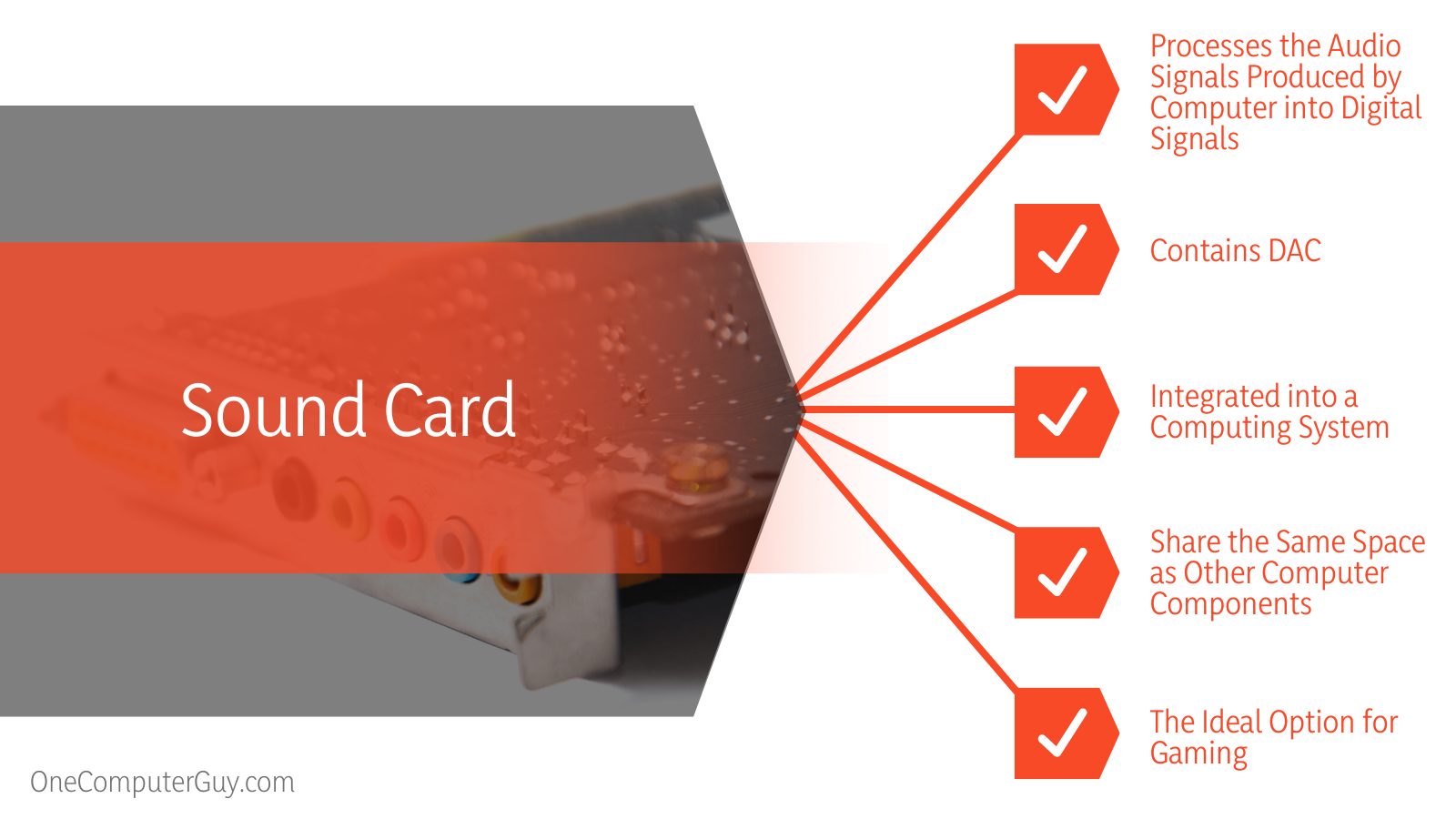 To better understand the meaning of both components, you can look at it this way: a DAC converts digital audio into analog pulses. Since DACs are often paired with amps, the DAC will send the converted pulses to the amp, which then amplifies the signal.
To better understand the meaning of both components, you can look at it this way: a DAC converts digital audio into analog pulses. Since DACs are often paired with amps, the DAC will send the converted pulses to the amp, which then amplifies the signal.
On the other hand, a sound card contains an amp, DAC, and an audio processor. Without a DAC, it’ll be difficult to build a sound card. And without a sound card, it’ll be difficult to get sound from your computer.
The audio processor in a sound card is what deals with music effects, surround sounds, and gaming effects. Once it’s done processing the digital signals, it’ll send them to the DAC, which then converts the digital signal to analog. Once the conversion is done, the analog signal is then sent to an amplifier, which then amplifies the sound.
Benefits of Using a DAC
– Convenience
DACs are often single external units that are connected to computers via USB. Most of them are plug-and-play peripherals, which means that they require no drivers and many of those do have their drivers readily available. This factor makes them beginner-friendly to sound enthusiasts and those looking for DAC for gaming.
– Versatility
Most DACs have a wide range of connectivity options, making them useful for many different tasks.
For instance, just one DAC can be connected to a mobile phone via Bluetooth, a computer through USB, and to a speaker through RCA out. This versatility makes some DACs a one-stop solution for all your sound needs; a feat sound cards are not able to provide.
– Excellent Sound Quality
DACs are standalone components. Since they do not share any space with your computer’s internals and hardware components, they are free from the noise and audio interruption provided by your computer’s internals.
Additionally, DACs tend to be outside your computer, which means that no interference from the internals of your computer will affect them.
Cons of Using a DAC
– Expensive Price Tag
Like we noted earlier, an external DAC tends to have its own amp. Most DACs with this design lack the kind of performance you’d get from separate units i.e. a separate DAC and amplifier.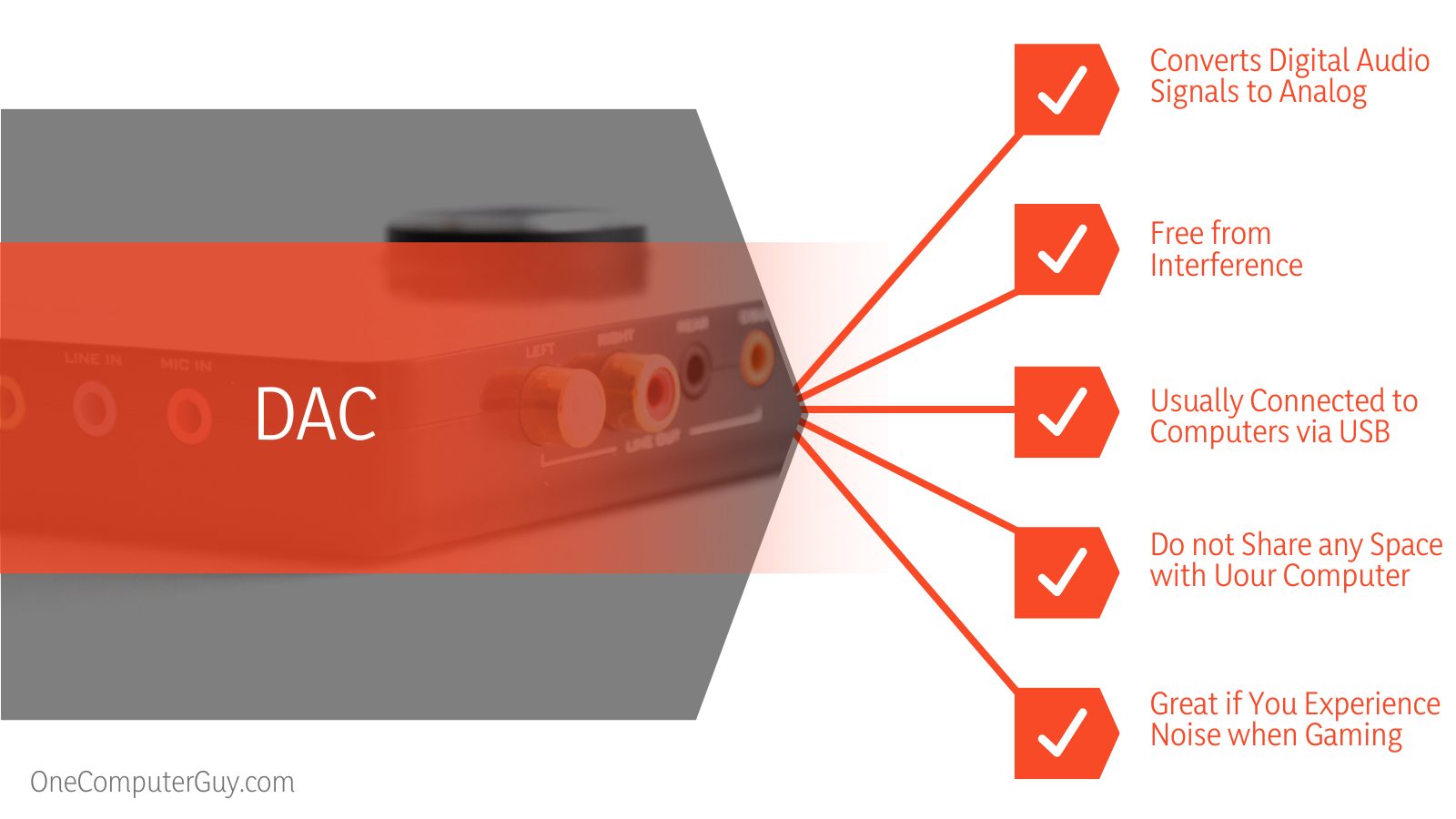
However, there are DACs and amp combos that offer the best quality, but as you may have guessed, these sound components have an expensive price tag. The higher the sound quality, the higher the price tag.
The Benefits of a Sound Card
– Sound Processing
Sound cards are designed with audio processors. These processors help the sound cards fine-tune the audio before sending it to the DAC. The most common sound processor you’ll find in a sound card is the sound equalizer or EQ that can be used to alter the frequencies of a sound to get the best listening experience.
Sound equalizers are highly beneficial to gamers and sound enthusiasts, especially if you’re listening via a headphone. With the right equalizer setting, you’ll be able to pick up frequencies that help you alter the sound to provide a more subtle or pronounced effect. The right EQ will surely provide you with the best listening experience.
– Great Value for Money
Unlike DAC and amp combos, high-quality sound cards aren’t very expensive. Additionally, most of them get discounted easily so you’re guaranteed to be able to pick one up at a cheap price. You can easily find older sound cards that used to be expensive for a fraction of their prices.
Cons of Using a Sound Card
– Signal Interference and Distortion
Sound cards are often integrated into a computing system. Unlike an external DAC that stays outside your computer and can be connected via USB, Bluetooth, and many other connectivity options, sound cards are usually connected via PCI or PCIe slots.
This means that they’ll have to share the same space as your other computer components, such as GPU, CPU, fans, etc.
Sharing a space with other hardware means your sound card is likely to experience interference and sound distortion from these components. While many newer-generation sound cards have brought the issue down to minimal levels, there’s still a chance that you’ll experience interference with a sound card compared to a DAC.
– Lack of Innovation
Lack of innovation in the sound card department is the reason why DACs are becoming popular today. While sound card technology has improved in modern times, compared to what we used to have, the changes in the technology aren’t very significant.
Each new generation of sound cards comes with a subtle increase in performance and quality that makes them just a little bit different from the previous generation.
DAC vs. Sound Card: Which Is Better for Gaming?
The main difference between DAC and Sound Card is, Sound cards are actually made up of DAC, audio processor, and amp, while DAC offers excellent sound quality with no distortion.
– Sound Card
A sound card for gaming is an ideal option especially if you have a modern motherboard. Most modern and high-quality sound cards are designed to produce minimal audio interference.
They also feature different hardware and software technologies that help enhance gaming audio, such as Dolby Atmos, THX, Bang and Olufsen Audio Control, etc. Additionally, sound cards offer a great surround sound experience and come with excellent equalizers to help you refine your audio.
– DAC
DACs are great if you experience noise when gaming or if your sound card isn’t providing great sound quality. As we noted earlier, external DACs are free from interference from your computer hardware.
They won’t experience the audio distortion sound cards are susceptible to, whether minimal or significant. If you hear noise from your computer when playing games at max volume or you have a cheap or older motherboard, then DAC is the best route to go.
What Are Amps?
We’ve mentioned amps a couple of times in this article and you may be wondering what they are. Amps or amplifiers are used to enhance low-level signals to higher levels so your sound card or DAC can transfer sound waves into the high-end drivers in your computer or headset speakers.
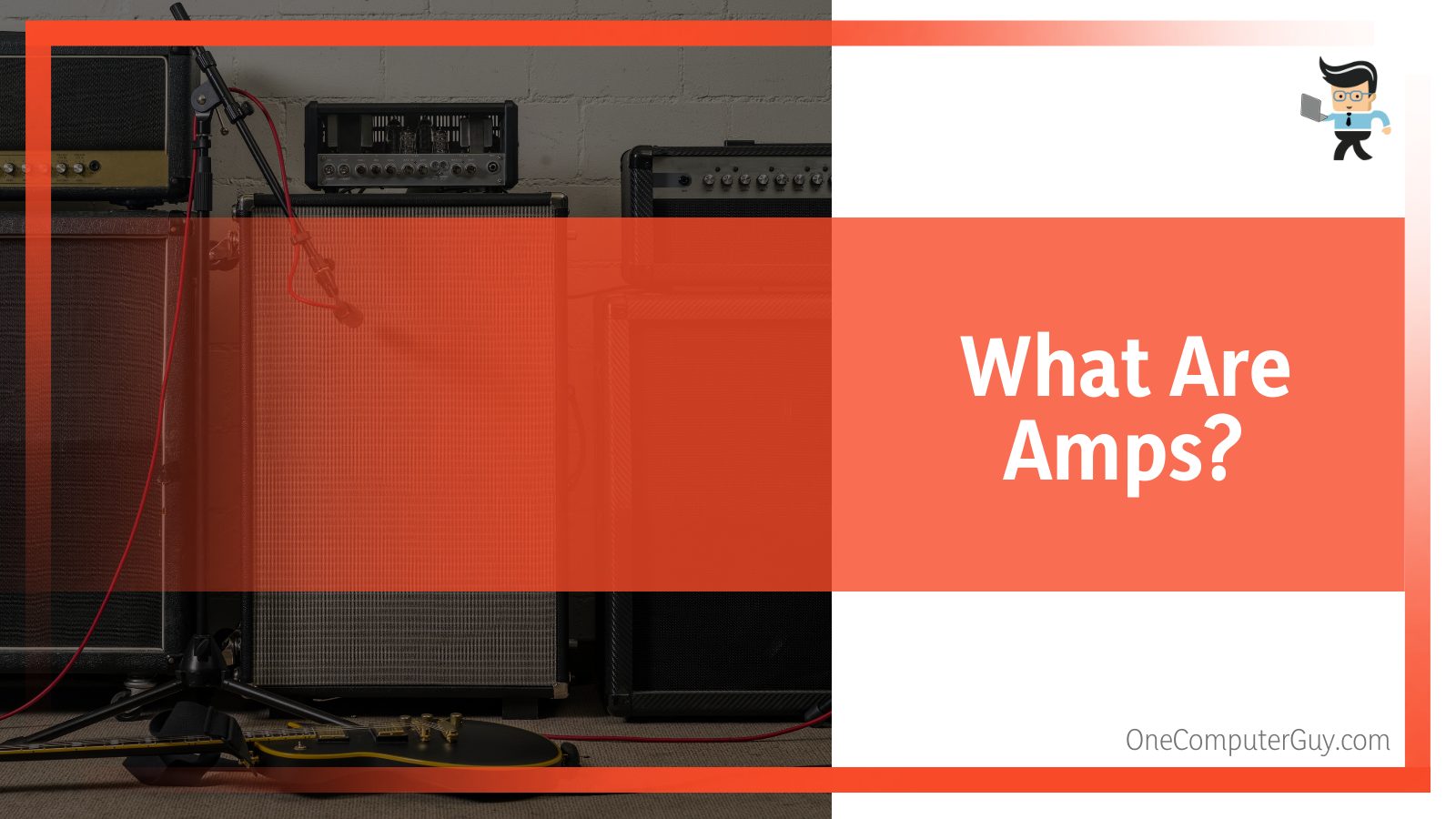
For instance, if you connect your phone or computer to some large speakers, the volume you get may not be sufficient or the sound may not be as crisp and clear. With an amp serving as the mediator between your device and the speakers, the signals will be enhanced and amplified so that the large speakers provide quality and louder sounds.
This same model applies to when you use an amp for your gaming headset or computer speakers. The signal coming from your phone or computer needs to be at the right level to provide quality sound from your headset or PC speakers.
How Do Amps Help With Gaming Headsets?
Amplifiers are designed to do only one thing; turn low-voltage signals into high-voltage signals. Doing so increases the volume range on your gaming headset.
So, if you connect your headset to your computer and you notice that the volume is still low even at maximum volume, connecting an amp can help resolve the issue.
Conclusion
We’ve talked about DAC vs. sound cards at length and the factors to consider when choosing one for gaming. Here is a quick summary to make sure you have the right information in mind:
- DAC means digital-analog converter
- DAC converts digital signals to analog
- Sound cards are made up of DAC, audio processor, and amp
- The audio processor in sound cards help fine-tune or adjust the audio frequencies
- DACs are ideal for gaming if you have an older or cheap motherboard
- DAC is also good for gamers experiencing noise from their computers
- Sound cards offer excellent software and hardware features, such as surround sound and Dolby Atmos
- DAC offers a wide range of connectivity options, such as Bluetooth, USB, and RCA
- Sound cards are often connected via PCI or PCIe slots
- Amps can help enhance the volume of your audio
Most gamers won’t be able to tell the difference between DAC and sound cards, especially if you have a quality sound card. But if you’re a music enthusiast or an audiophile, then getting a DAC will be in your best interest as you’ll enjoy excellent sound quality with no distortion.

